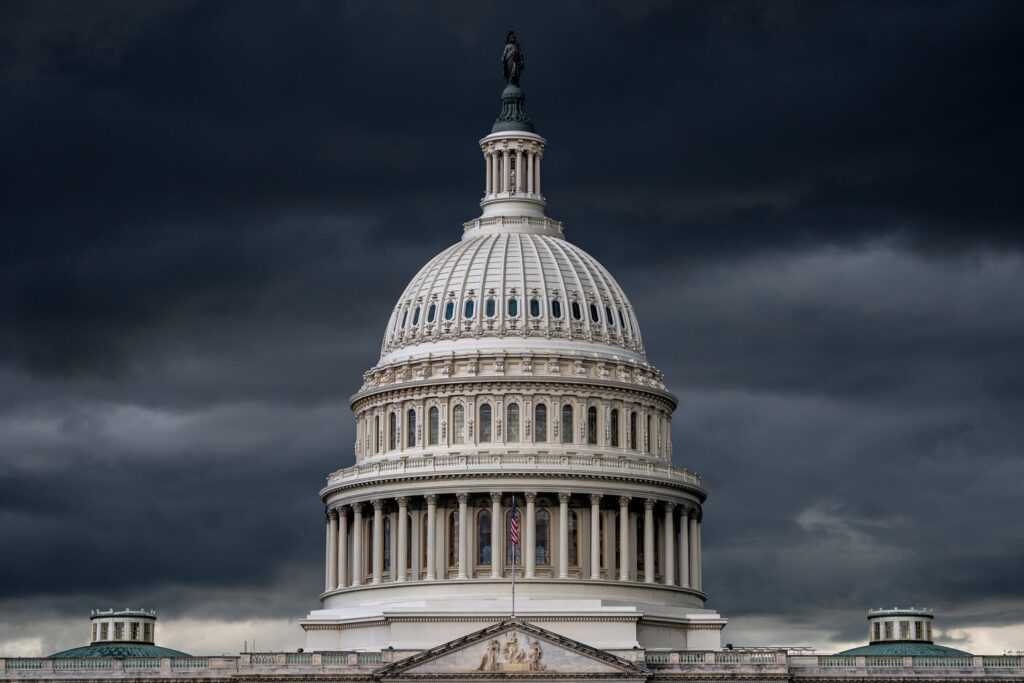WASHINGTON – The federal government entered a partial shutdown early Saturday after Congress failed to pass legislation in time to keep a wide range of departments open.
But the shutdown is expected to be short-lived and have little impact, as Senate leaders announced they had agreed to vote on the funding measure early Saturday.
The House passed a $1.2 trillion spending bill Friday morning that would provide funding for the Departments of State, Defense, Labor, Health and Human Services, Homeland Security and more. But the Senate was unable to reach an agreement on a quick vote ahead of a midnight deadline to fund those departments as Republicans pushed for amendments.
The Senate advanced the bill in a 78-18 procedural vote Friday, suggesting there is enough support to get it across the finish line. Senate Majority Leader Chuck Schumer of New York announced just before the deadline that both parties had agreed to vote on several amendments and give the bill final passage early Saturday morning.
Barring any unforeseen issues, the closure will have little impact. If the situation drags on until Monday, it could lead to furloughs and shutdowns of various federal services, leaving “essential” workers like air traffic controllers and TSA agents on the job regardless.
“It's been a very long and difficult day, but we've reached an agreement to complete the job of funding the government,” Schumer announced on the Senate floor just before midnight. “It's good for the country that we've reached this bipartisan agreement.”
A divided Congress narrowly avoided multiple shutdowns this session, passing four stopgap bills that continued to extend deadlines. And now, nearly six months into the fiscal year, haggling over financing plans has begun unusually late. The latest bill was announced Thursday and passed the House of Representatives on Friday morning, leaving little time for the Senate to act.
For a bill to be voted on quickly, all 100 senators must agree to expedite the process, and senators typically use messaging to reduce the procedural time required to complete consideration of a bill. You must agree with the group on the amendment vote.
Those talks appeared to break down midday Friday, but Sen. Tom Cotton (R-Ark.) claimed the deal had been broken by vulnerable Democrats in key Senate races. , argued there was no need to vote on an amendment that could destroy the agreement. It was used against them in their re-election campaign.
“The bottom line is that Democratic senators who are running for re-election are afraid to vote for this amendment,” Cotton told reporters, adding without providing evidence. “Jon Tester says he wants to vote on amendments after shutting down the government and voting Sunday night.” We'll give you these amendments. ”
But Tester, a Democrat running for re-election in the red state of Montana, which could decide the Senate majority, shot back to NBC News: “That's bullish.”
The exchange culminated as both senators were speaking to a separate group of reporters just a few feet from the Senate chamber.
“Did you tell me that Cotton is holding up the amendment because of Jon Tester?” Tester yelled at Cotton during the exchange. “Because if he does, he might be full of something that comes out of the cow's back.”
Senators were frustrated by the fact that Congress was able to avoid funding lapses multiple times this fiscal year, but is struggling to do so in the final fiscal year.
Sen. Lisa Murkowski (R-Alaska) said in an interview that it “makes me sick,” and that after Senate Republicans were served these items for lunch, “I feel like I've had too much sugar and bad pizza.” ” he added.
“If we had salmon, we would have thought, 'Cause it's like all the good omega-3s in salmon,” she says. “We're just like a candy pizza mess, operating like teenage boys.”
“If we can't fund the government tonight, we're all going to lose money, and we're all going to lose a lot of money,” Sen. Richard Blumenthal, D-Conn., told reporters. “No one emerges victorious from a disaster like the failure to fund the government.”
“You may be quite critical of the House and the House leadership, but the House found a way to pass the bill today,” Mkouksi said Friday. “The responsibility for a government shutdown will not lie with the House of Representatives, but with the U.S. Senate. We know better than that.”


